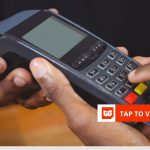According to regulatory filings in Delaware, Gokada, one of Nigeria’s most prominent last-mile delivery companies, filed for Chapter 11 bankruptcy protection in October 18, 2024. Chapter 11 allows an organisation to work out a plan to repay creditors over time, reducing the amount owed or extending the repayment period. This way, the company does not have to liquidate its assets to pay debts.
Gokada’s chapter 11 filing follows unsuccessful efforts to raise new funding, including a 2023 campaign on GetEquity, where it attempted to raise $750,000 at a $10 million valuation from retail investors.
Despite raising $5.3 million in a 2019 Series A round, Gokada has struggled financially. Per its October filing, the company’s total liabilities are $5.2 million—it owes $1.8 million to 20 of its largest creditors who are not insiders— on assets worth $560,000 ($64,000 in cash.)
In October 2024, Gokada stated that its gross revenues year-to-date were $118,988, lower than the $268,779 it reported in 2023.
“As a result of not closing the proposed funding, Gokada has remained on the brink of shutting down for the entirety of 2024,” Olutosin Oni, the CEO of the eight-year-old company, wrote to investors in an email seen by TechCabal.
Oni, named CEO in 2022, noted that naira depreciation made profitability elusive.
“Significant time and effort has been put into making Gokada profitable over the years unfortunately with the severe decline in the value of the Nigerian Naira, we have not yet reached that goal,” Oni told investors in the email seen by TechCabal.
Gokada and Oni declined to comment on any part of this story.
Despite the grim outlook, Gokada is not giving up. The company will use Chapter 11 provisions to restructure its debts and attempt a financial turnaround.
While the company has been in significant debt for years, its lead investor, Rise Capital, has been supportive. According to Oni, Rise Capital has been “willing to fund the company independently in order to pay off Gokada’s creditors and keep it operational. Unfortunately, they are no longer able to single-handedly shoulder the economic burden.”
October’s bankruptcy filing marks the latest chapter in a journey of restructuring and pivoting. Founded by Fahim Saleh and Deji Oduntan, Gokada gained traction as a bike-hailing service, helping commuters navigate the notorious Lagos traffic jams. By 2019, the company had completed about 1 million trips and raised $5.3 million in Series A raise funding.
The company’s financial troubles appear to have begun shortly after announcing its Series A raise. Deji Oduntan resigned as CEO and was replaced by Saleh and Ayodeji Adewunmi, who also left the company in 2019. Tosin Oni became CEO in 2022.
Beyond the leadership upheavals, the Lagos state government added to Gokada’s troubles in early 2020 after it banned bike-hailing startups from operating in 15 of the city’s 20 local government areas. It was a major blow to Gokada and several bike-hailing startups.
In the face of these setbacks, Gokada adapted. It laid off 70% of its staff and pivoted to logistics (Gsend) and food delivery (GShop). According to Oni, the layoffs were a response to a harsh macroeconomic environment, with the company prioritising efficiency as it navigated negative cash flow.
By June 2020, Gokada was reportedly processing over $100 million in annualised transaction value and fulfilled over 1 million food and e-commerce delivery orders for 30,000 merchants on its platform. It also expanded its ride-hailing services to Abuja, Port Harcourt, Ibadan, and Ogun State, where commercial bikes were not banned.
The business model continued to evolve. It went from owning a fleet of motorcycles to an asset-light model, connecting third-party logistics providers with delivery orders on its platform. The shift was intended to cut costs, reducing the financial burden of maintaining a fleet of expensive bikes.
By February 2024, Gokada had fully embraced this asset-light approach, owning only 10% of the 5,000 bikes on its platform. Yet, reports of an acquisition by logistics firm Kwik, which never materialised, suggested the business still struggled.
GoKada’s bankruptcy filing highlights a crucial lesson in the business world that cutting costs alone cannot guarantee survival. GoKada faces the daunting task of raising funding or finding an acquisition partner to survive.
Get the best African tech newsletters in your inbox





GIPHY App Key not set. Please check settings